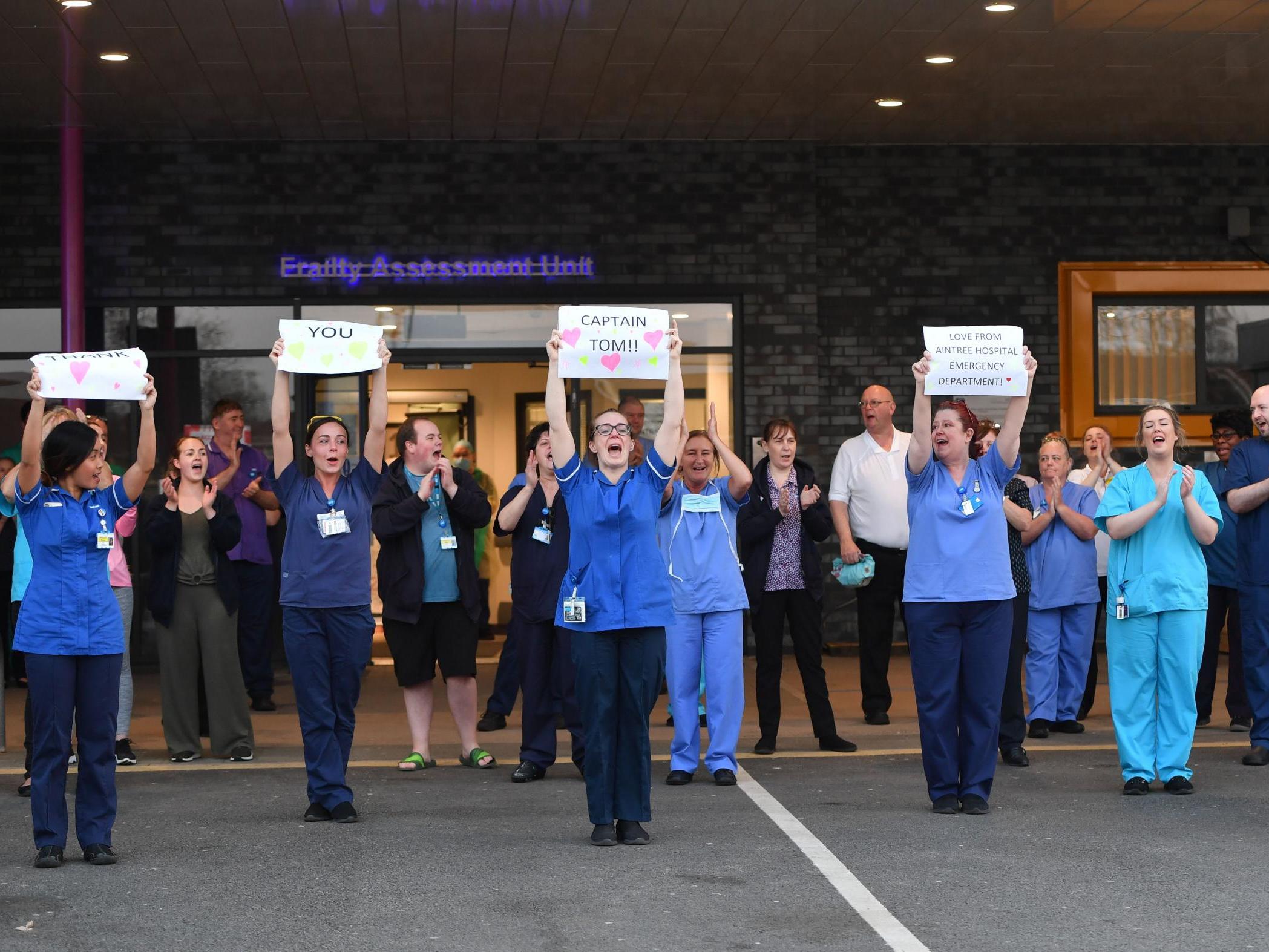Coronavirus: Government denies claims it created fake NHS Twitter accounts to support Boris Johnson
Department for Health and Social Care calls claims ‘categorically false’

The government has denied it is responsible for a host of Twitter accounts allegedly posing as NHS workers.
The Department for Health and Social Care (DHSC) had been accused on social media of operating a co-ordinated network of fake accounts under the name of healthworkers and supportive of Boris Johnson, but it has denied having any role in their creation and no firm evidence has emerged of any link.
Instead, they appear to have been intended to troll other internet users, with a series of tweets that suggest they were in fact meant as something like satire.
Twitter user John O’Connell, who first made the claims on Monday and which were then widely shared, said that he had found “128 fake NHS staff accounts” that were tweeting posts supportive of government policy, though he only pointed to one account. He said he had found evidence that the accounts were set up by the Department for Health and Social Care or its marketing agency, he claimed, though he did not share that evidence or any information about how he had discovered that evidence.
But the department involved has denied any involvement in the posts or setting up the accounts.
“These claims are categorically false,” the DHSC posted from its official Twitter account. “To share disinformation of this kind undermines the national effort against coronavirus.”
It linked out to the government’s “Share Checklist”, which is intended as a way of dispelling false stories about coronavirus and other news events.
Mr O’Connell, an anti-far right activist, repeatedly claimed that the DHSC had refused to look at information he had on where the tweets were coming from. But the department said that it had asked him to see further details “several times” and that such evidence had not been provided.
In his tweets, Mr O’Connell pointed to only one specific account, using the name “NHS Susan”, which claimed to be owned by a junior doctor involved in the fight against coronavirus.
That account had posted supportive messages of Boris Johnson and the government’s response to the pandemic in the UK, before it was removed. But it also posted a variety of messages that appeared to be intended primarily to troll critics, and which suggested that the account was not intended to be taken seriously.
The account had posted messages suggesting that it wanted to have the weekly Clap For Our Carers celebration banned, for instance, which is not government policy as well as being an unlikely position for an account trying to pose as a real NHS worker to take.
Mr O’Connell’s tweets did not give any information on the 127 other false accounts he claimed to have found on Twitter. He also gave no evidence for his claim that the accounts were being run on behalf of the DHSC, or that he had discovered the specific person who was co-ordinating them.
West Herts Hospitals, where the picture used on the “NHS Susan” account had been taken, said that it was aware of the fake account and had it taken offline.
“We reported this fake account to twitter as soon as we were made aware of it,” it wrote on its official Twitter page. “It has now been shut down.”
Twitter said that it had not seen evidence of any large-scale manipulation of its platform, from the UK government or anyone else.
“Our specialist teams currently do not see evidence of large-scale coordinated platform manipulation surrounding the Covid-19 conversation, including suggested coordination associated with the UK Government,” a spokesperson said. “As is standard, we will remove any pockets of smaller coordinated attempts to distort or inorganically influence the conversation.
“We are continuing to review and require the removal of Tweets that do not follow the Twitter Rules — half of which we catch before they’re ever reported to us. If people see anything suspicious on our service, please report it to us. This is an evolving global conversation and we will remain vigilant.”
Join our commenting forum
Join thought-provoking conversations, follow other Independent readers and see their replies
Comments
Bookmark popover
Removed from bookmarks